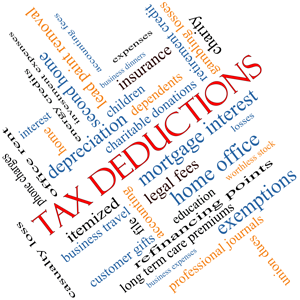Claiming Union Dues and Other Professional Fees
Claiming Union Dues and Insurance Premiums in Canada
 The Canadian tax system is a complex one, and while there are some deductions and credits—like RRSP contributions or charitable donations—which are familiar to just about every taxpayer, others are not so well known. One of those is the deduction which can be claimed by any taxpayer who must pay union dues or professional fees or professional liability insurance premiums.
The Canadian tax system is a complex one, and while there are some deductions and credits—like RRSP contributions or charitable donations—which are familiar to just about every taxpayer, others are not so well known. One of those is the deduction which can be claimed by any taxpayer who must pay union dues or professional fees or professional liability insurance premiums.
All such claims are made on Line 212 of the annual tax return, and allow the taxpayer to deduct eligible amounts paid, in full, from their income. In effect, no tax is payable on any income amounts which are used to pay union or professional dues or insurance premiums. And, unlike other deductions, there is no dollar figure limit imposed on amounts which may be deducted for professional or union dues, or professional liability insurance.
While the definition of professional or union dues or premiums payable for professional liability insurance may seem straightforward, there can in fact be a number of different types of payments involved. In determining what does and doesn’t qualify for the deduction, it’s necessary to consider the different types of dues and premiums separately.
Claiming Professional dues and insurance premiums
Essentially, the rule for deduction of these amounts provides that dues paid are deductible only where membership in an organization is necessary for the taxpayer to maintain professional status. So, for example, dues paid by a doctor to maintain membership in the College of Physicians and Surgeons in the province (or provinces) in which he or she practices medicine are deductible: dues paid to maintain membership in the Canadian Medical Association are not.
Where the taxpayer who is seeking a deduction for such fees is an employee, it’s necessary that there be a reasonable degree of relationship between the payment of the membership fees and the requirements of the employee’s position. Continuing with the above example, a doctor who is employed by a hospital in whatever capacity should be able to claim a deduction for dues payable. A doctor who is working outside the medical field entirely but still wishes to maintain his or her membership in the College of Physicians and Surgeons will likely not be eligible to claim a deduction for dues paid.
The deduction of professional liability insurance premiums paid is more straightforward. A professional who is paying premiums for professional liability insurance is one who is working in his or her professional capacity. Such individuals can claim a deduction for the total amount of such premiums payable for insurance coverage during the calendar year for which the tax return is being filed.
Claiming Union dues in Canada
Like professional fees, union dues can be deducted where membership in a trade union is a requirement for the taxpayer to work in his or her trade or occupation. The Canada Revenue Agency’s (CRA’s) position is that membership dues and parity or advisory committee (or similar body) dues required under provincial or territorial law qualify for the deduction.
For both types of fees, other amounts can be included in the annual levy, but many of those amounts do not qualify for a deduction. Specifically, the CRA’s view is that dues eligible for the deduction do not include initiation fees, licenses, special assessments, or charges for anything other than the organization’s ordinary operating costs. It’s also not possible to claim charges for pension plans as membership dues, even if receipts received show them as dues.
Whether the fees in question are professional fees or union dues, a deduction can be claimed by an individual only where he or she is the person paying the fees or dues. Where those amounts are paid by an employer, and not shown as taxable benefit on the T4 slip for the year, no deduction for amounts paid is claimable by the employee.
There is, unfortunately, relatively little information provided by the CRA on the subject of claiming professional or union dues. The Agency once published interpretation bulletins on the subject, but those bulletins are now archived, meaning that they have not been updated in several years. The annual income tax guide does refer to those bulletins, however, as a source of information, and they can be found at www.cra-arc.gc.ca/E/pub/tp/it103r/it103r-e.html (for union dues), and at www.cra-arc.gc.ca/E/pub/tp/it158r2/it158r2-e.html (for professional fees). To obtain the most current information, taxpayers can call the CRA’s individual income tax enquiries line at 1-800-959-8281.
The information presented is only of a general nature, may omit many details and special rules, is current only as of its published date, and accordingly cannot be regarded as legal or tax advice. Please contact our office for more information on this subject and how it pertains to your specific tax or financial situation.
